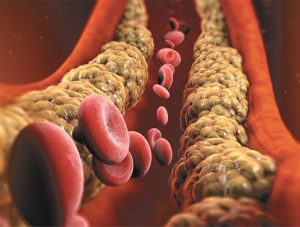 National Cholesterol Education Month serves as a timely reminder of the vital role cholesterol plays in our overall health.
National Cholesterol Education Month serves as a timely reminder of the vital role cholesterol plays in our overall health.
With vascular diseases like stroke and atherosclerosis being leading causes of death worldwide, it’s crucial to comprehend how high cholesterol levels contribute to their risk. This article delves into the intricate connection between high cholesterol, stroke risk, and atherosclerosis, shedding light on preventive measures and promoting heart-healthy lifestyles.
The Silent Threat of High Cholesterol
Cholesterol, often dubbed the “silent killer,” is a waxy substance found in our blood that is crucial for various bodily functions. However, an excessive accumulation of cholesterol, particularly low-density lipoprotein (LDL) cholesterol, can lead to dire consequences. High levels of LDL cholesterol can pave the way for atherosclerosis, a progressive condition where fatty deposits accumulate on the inner walls of arteries.
Atherosclerosis: The Arterial Culprit
Atherosclerosis, commonly referred to as “hardening of the arteries,” is a stealthy process that unfolds over years. As LDL cholesterol infiltrates the arterial walls, it triggers inflammation and the formation of plaque. This buildup narrows and stiffens arteries, restricting blood flow and oxygen supply to vital organs. This compromised circulation can have devastating effects on the heart and brain.
The Stroke Connection
Stroke, a serious medical emergency, occurs when the blood supply to the brain is disrupted. Atherosclerosis significantly heightens the risk of stroke by creating an environment ripe for blood clots. Plaque that builds up within arteries can rupture, leading to the formation of blood clots that can obstruct blood flow to the brain. Without adequate blood flow, brain cells begin to die within minutes, resulting in stroke-related disabilities or even death.
Understanding Ischemic Stroke
Ischemic stroke, the most common type, is primarily caused by blood clots or plaque blocking blood vessels supplying the brain. Atherosclerosis contributes significantly to ischemic stroke occurrences. The smaller the blood vessels that are affected, the more profound the impact on brain function. Preventing or managing atherosclerosis is thus essential for reducing the risk of ischemic stroke.
Taking Control: Preventive Measures
National Cholesterol Education Month encourages us to take proactive steps to manage our cholesterol levels and mitigate stroke and atherosclerosis risks:
1. Healthy Diet: Adopting a diet rich in fruits, vegetables, whole grains, lean proteins, and healthy fats can help regulate cholesterol levels. Minimize saturated and trans fats, as they contribute to elevated LDL cholesterol.
2. Regular Exercise: Engaging in regular physical activity enhances cardiovascular health and can increase high-density lipoprotein (HDL) cholesterol, the “good” cholesterol that helps remove excess LDL cholesterol from the bloodstream.
3. Medication: In cases where lifestyle changes aren’t sufficient, doctors might prescribe cholesterol-lowering medications like statins. These drugs help control LDL cholesterol levels and reduce the risk of atherosclerosis-related complications.
4. Lifestyle Modifications: Avoiding smoking and limiting alcohol intake can contribute to overall heart health, helping to prevent atherosclerosis and related complications.
Raising Awareness
National Cholesterol Education Month serves as an opportunity to raise awareness about the importance of regular cholesterol screenings. Early detection of high cholesterol allows individuals to take necessary actions before serious complications like stroke and atherosclerosis manifest.
Understanding the intricate relationship between high cholesterol, stroke risk, and atherosclerosis is pivotal in safeguarding our cardiovascular health. Through informed lifestyle choices, medical intervention, and a commitment to heart-healthy practices, we can significantly reduce the impact of these life-threatening conditions. This National Cholesterol Education Month, let’s empower ourselves with knowledge and take charge of our vascular well-being.
The Vascular and Vein Center at Gulfcoast Surgeons is one of the first and most respected vein clinics in Southwest Florida. Our surgeons, Dr. Abraham Sadighi and Dr. Johan Escribano have performed thousands of vascular and vein surgeries over the past 28 years. We focus on diseases of the vascular system that can range from harmless but unattractive spider veins to dangerous conditions such as peripheral artery disease. Our caring and dedicated team will help you identify problems and offer the best treatment options for you at any of our three locations.
Vascular and Vein Center at Gulfcoast Surgeons
877-LEG-PAIN
gulfcoastsurgeons.com
Fort Myers
8010 Summerlin Lakes Dr., Ste. 100
Fort Myers, FL 33907
Cape Coral
1003 Del Prado Blvd., Ste. 303
Cape Coral, FL 33990
Bonita Springs
24301 Walden Center Dr., Ste. 102
Bonita Springs, FL 34134










